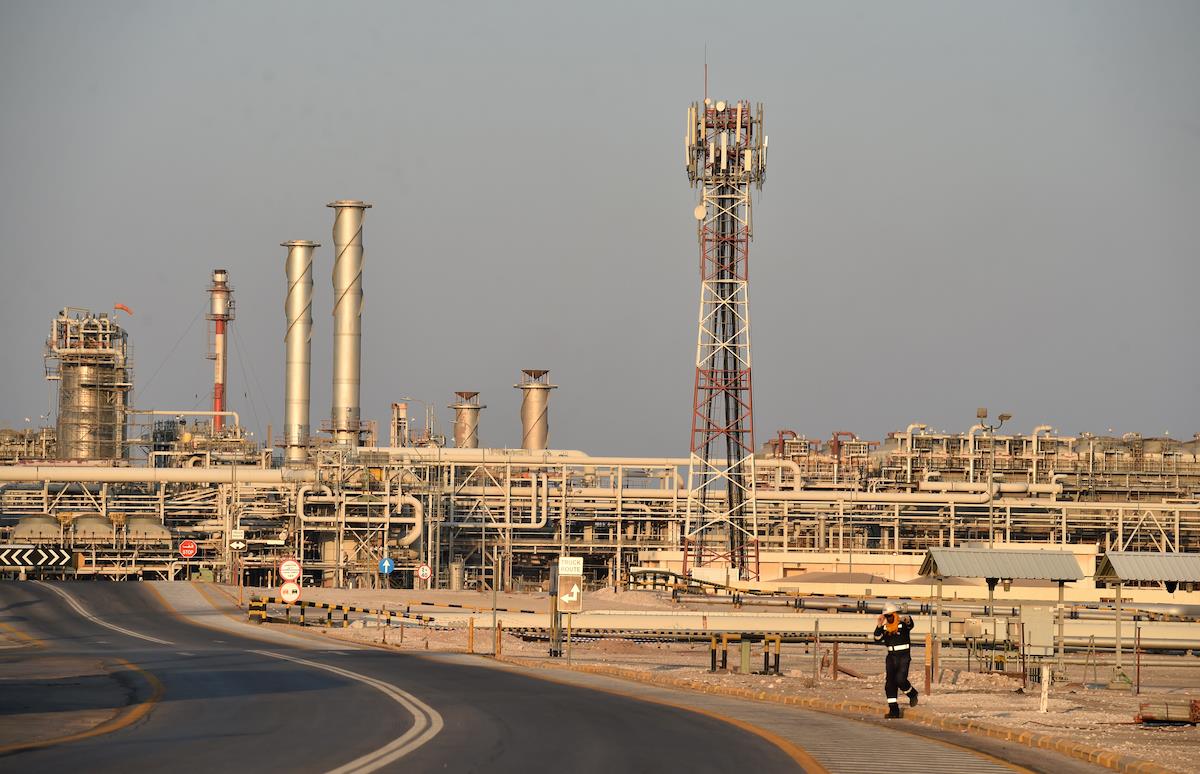(MENAFN- Asia Times) JAIPUR – Shock news that India's Reliance Industries (RIL) and Saudi Arabia oil giant Aramco had called off their deal roiled the Indian stock market on Monday, with the BSE Sensex tumbling 1.96%. Markets regained some of that lost ground on Tuesday but the BSE Sensex closed only a notch higher, at 0.34% above Monday's closing price.
Reliance shares closed more than 4% down at around US$31.70 per share on Monday and while opening lower on Tuesday they found support from investors to close 1.1% higher at 2,389.95 rupees, or $32.12 per share.
The dip has taken some of the air out of the Indian market's recent strong rally, which has drawn both small-scale local punters and global funds to financial, industrial and technology companies on the bourse.
Just days before, as of November 11, the MSCI India index was up about 30% so far this year — nearly twice the return of the global index — while India's benchmark 30-share S&P BSE Sensex was up roughly 25%.
Both have turned in a recent string of record highs, climbing on an array of drivers including good demographics, governmental and fiscal policy and geopolitical changes.
Reliance's stock lost nearly $9 billion in market value during Monday's trading on the Armaco news. That marked a significant drop from October when the price touched $36.90.
Saudi Aramco signed a non-binding letter of intent in August 2019 to take a 20% stake in the oil-to-chemicals (O2C) business of Reliance.
Reliance is India's largest private sector company, with a consolidated turnover of $73.8 billion, cash profit of $10.9 billion, and net profit of $7.4 billion for the year ended March 31, 2021.
Its activities span hydrocarbon exploration and production, petroleum refining and marketing, petrochemicals, retail and digital services.
“The Indian markets were all set for a decent correction after a big run-up. So, the markets were just waiting for a trigger and that trigger was found in the withdrawal of the Reliance Aramco deal,” said Rajeev Ranjan Jha, editor of the Nivesh Manthan business magazine.

Saudi Aramco's Abqaiq oil processing plant. Photo: AFP/Fayez Nureldine
Jha said that the exact reason for the deal's collapse is still a matter of market speculation.
He said current disclosures suggest that the deal is not going through in its current form but it could still be renegotiated. The statement issued by Reliance left the door open for a future deal, he said.
“But as of now, it's evident that Reliance is not going to get the big cash amount from Aramco in the near foreseeable future,” Jha said.
“The stock markets are taking that as a jolt for the company. But Reliance has already deleveraged its balance sheet to a great extent and generates a lot of free cash every quarter. Both Reliance and Aramco have aggressive plans for energy from new alternatives,” Jha added.
Jha said that while Reliance has announced a big foray into new energy and materials businesses, Aramco also has plans to become the largest supplier of green hydrogen fuels in the future.
“So, probably this is the 'changed context' which has forced both the companies to re-evaluate their deal and I won't be surprised if they come up with a revised deal after some time,” Jha said.
Even in the absence of the Aramco deal, Reliance won't face any financial hurdles to its planned investments because of its strong balance sheet and free cash flow.
Jha said any further hit to Reliance's share price might be linked to the direction of the stock market and not because of the deal's cancelation.

Shares on the Bombay Stock Exchange in Mumbai took a hit after the Reliance Aramco deal fell through. Photo: Himanshu Bhatt / NurPhoto
Sandeep Jain, co-founder of Tradeswift, a leading commodity, equity and currency derivatives broker, said the collapse of the deal came as an unpleasant surprise to markets.
Jha and Jain said the failed deal was only one of the reasons the market swooned. Other negative drivers included Prime Minister Narendra Modi's announcement on November 19 that three controversial farm laws would be repealed.
Jain said the repeal was an investor sentiment dampener even though the laws were broadly opposed by farmers who protested for months against them.
“There are fears that Modi government's backtracking on farm law reforms would create volatility in the markets and discourage inflow of foreign funds,” said Jain.
MENAFN23112021000159011032ID1103236139
Legal Disclaimer:
MENAFN provides the information “as is” without warranty of any kind. We do not accept any responsibility or liability for the accuracy, content, images, videos, licenses, completeness, legality, or reliability of the information contained in this article. If you have any complaints or copyright issues related to this article, kindly contact the provider above.